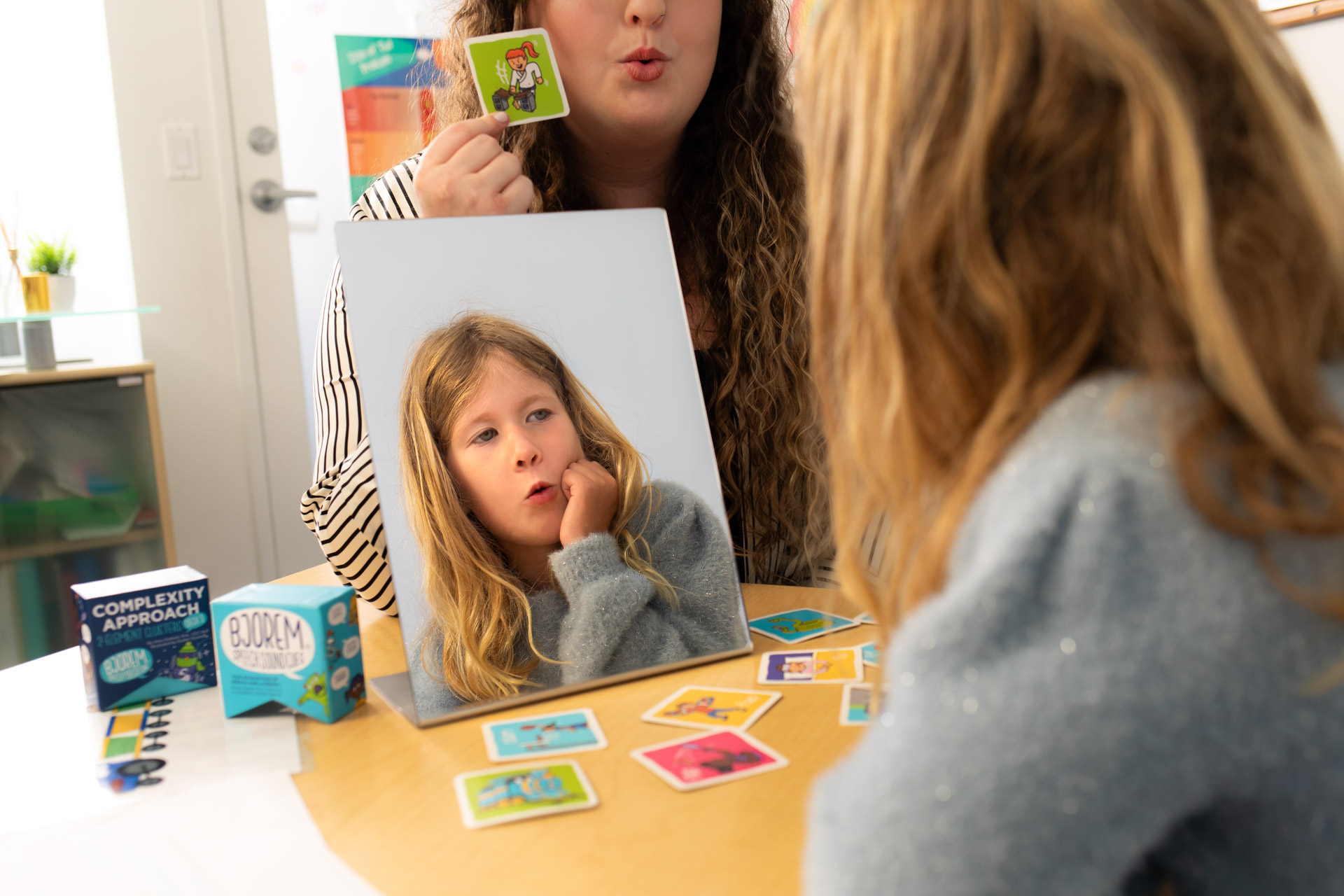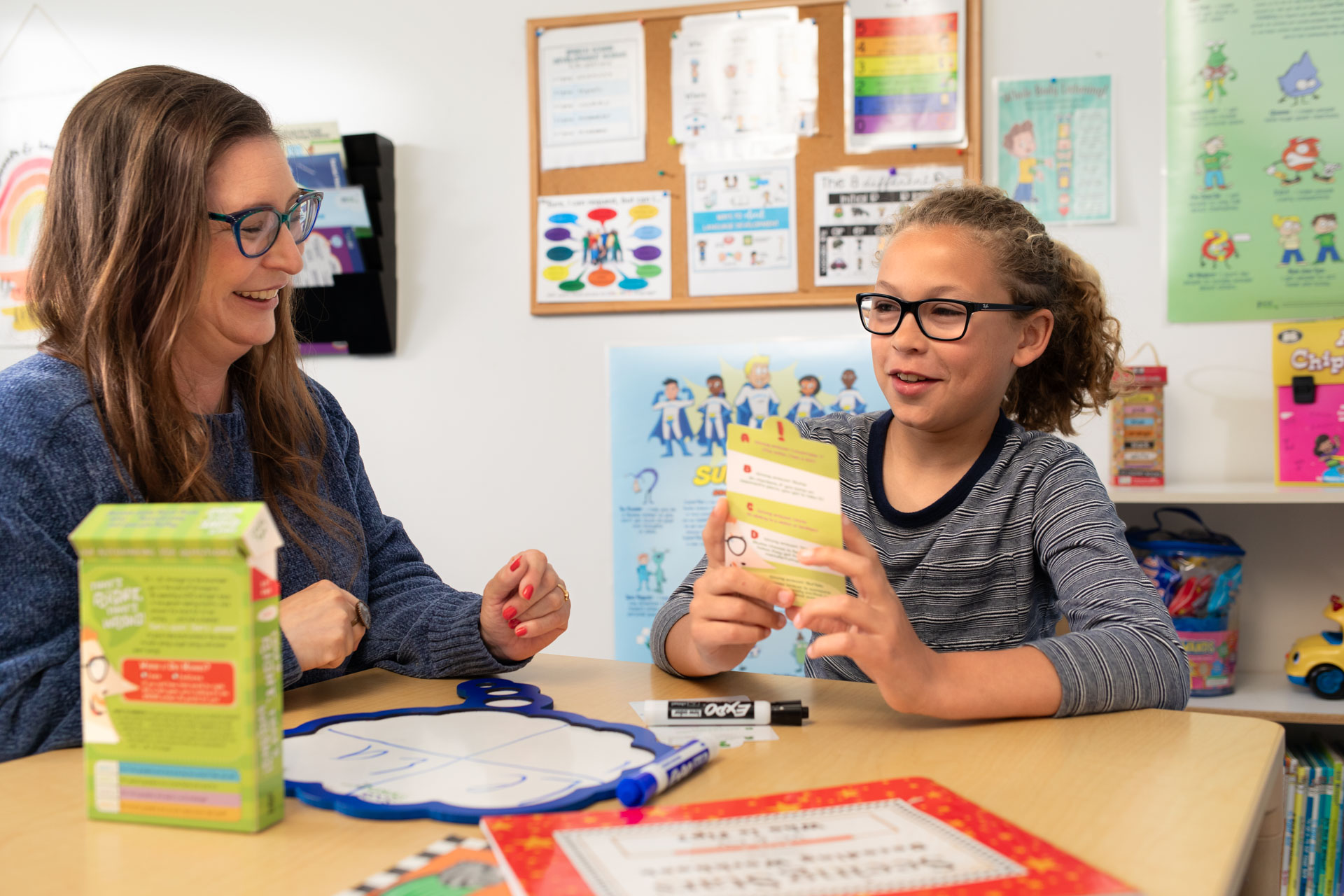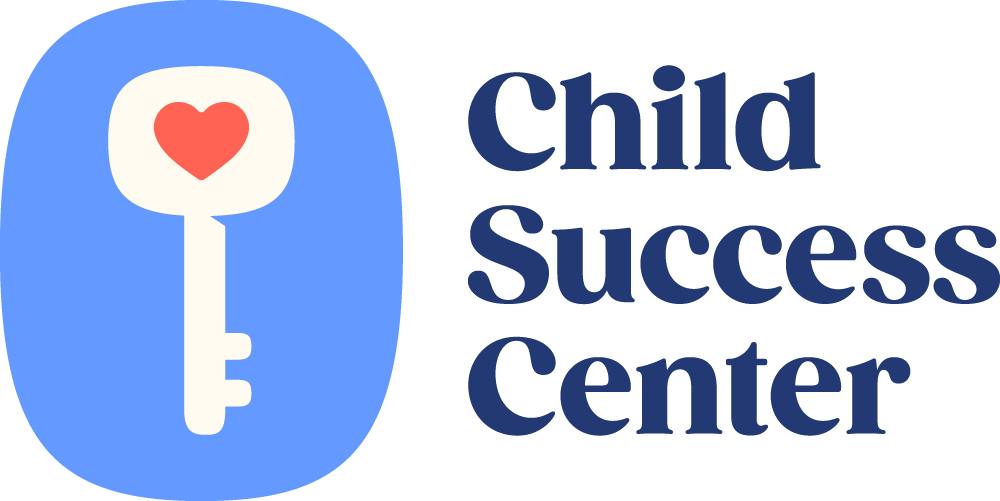Speech and Language Therapy Diagnostic Resources
Childhood Apraxia of Speech
Childhood Apraxia of Speech (CAS) is a complex disorder where children struggle to plan and execute precise speech movements, despite knowing what they want to say. PROMPT therapy, an evidence-based treatment method used by skilled therapists at CSC, offers a fun and engaging approach to help children with CAS improve their speech clarity and communication skills. By focusing on the whole body and collaborating with occupational therapists, CSC creates a holistic and integrated approach that maximizes progress and makes therapy a positive experience for children with motor speech disorders.
Articulation and phonological skills

At Child Success Center, we recognize that speech sound disorders can manifest in various ways, from single sound errors to complex phonological patterns. Our approach goes beyond traditional structured therapy, integrating targeted strategies for oral motor weakness when necessary. We emphasize creating an enjoyable, play-based environment that keeps children motivated and engaged throughout their therapeutic journey. Our team is equipped to assess and address a wide range of articulation and phonological concerns, always considering the potential impact on a child's social and emotional development as they grow and interact with peers and others in their community.
Speech Fluency
Speech fluency disorders, including stuttering, can significantly impact a child's ability to communicate smoothly and effectively. At Child Success Center, our Speech-Language Pathologists recognize the diverse nature of these challenges and have developed a range of tailored strategies to address them. Taking a holistic approach, we invest time in creating individualized therapy programs that seamlessly integrate into each child's life, distinguishing between normal developmental disfluencies and more significant fluency challenges to provide appropriate support.
Dysarthria
Dysarthria is a motor speech disorder characterized by impaired movement of speech production muscles, affecting articulatory precision, speech speed, and overall intelligibility. At Child Success Center, we address this complex disorder through a playful approach, incorporating activities like bubble blowing and tongue twisters to strengthen muscles and improve speech clarity. Our fun-centered therapy leads to greater engagement and longer participation cycles, contrasting with heavily-structured methods and recognizing that each case of dysarthria requires individualized assessment and treatment.
Auditory Processing Disorder (APD)
Auditory Processing Disorder (APD) affects how the brain interprets sounds, despite normal hearing, and can manifest as difficulties with sound localization, auditory discrimination, and speech comprehension in noisy environments. At Child Success Center, our experienced therapists have developed strong partnerships with local APD diagnosis specialists, enabling us to provide comprehensive assessments and tailored interventions. We guide parents through the evaluation process, recommending follow-ups with our speech and language team and audiologist appointments to ensure a thorough understanding and appropriate support for each child's unique needs.
Expressive and Receptive Language Delays

Receptive and expressive language disorders, the two most common language challenges in children, involve difficulties in understanding others and communicating one's own thoughts. At Child Success Center, our passionate and experienced speech-language pathologists address these issues through tailored, play-based therapy sessions that align with each child's personal interests. This approach transforms therapy into engaging play, naturally motivating children to speak, learn, and overcome their language delays through effective, individualized interventions.
Autism Spectrum Disorder (ASD)
Augmentative and Alternative Communication (AAC)
Augmentative and Alternative Communication (AAC) encompasses various methods that empower individuals who have difficulty with verbal communication. At Child Success Center, our Speech Language Pathologists are experts in AAC, utilizing the latest tools and technology to help children express their thoughts and needs effectively. Through comprehensive evaluations and by building strong rapport, we identify the most suitable communication approaches for each child, ensuring they can connect with others and share their voice, regardless of their speaking abilities.
Orofacial Myofunctional Disorders (OMD)
Concerns regarding this diagnosis can significantly impact a child's development, affecting various aspects of their daily life as outlined below. Tongue-tie occurs when the frenulum, a small tissue under the tongue, is too tight or short, restricting tongue movement and efficiency. Ties can also be found in the buccal cavity (causing tightness in the cheeks) and within the posterior lingual area (affecting the back of the tongue often causing a sensitive gag reflex). OMDs, including association with tongue-ties, are complex issues affecting facial, oral muscles and structures.
- Impact on Speech and Communication: These Children often struggle to pronounce certain sounds, particularly "t," "d," "l," and "r," due to limited tongue mobility and or strength. This can lead to speech delays, unclear speech, and frustration when communicating. Without treatment, these issues may persist, affecting the child's performance in school, social interactions, and self-esteem.
- Impact on Feeding: In infancy, this may cause difficulties with breastfeeding or bottle feeding, leading to long feeding sessions, poor latching, and frustration. As children grow, they might become picky eaters, avoid foods that are harder to chew, or experience messy mealtimes with food spillage and prolonged eating durations. These symptoms may also be present due to labial (lip) closure weakness that can be remedied with Myofunctional therapy.
- Connection to Core Strength: Surprisingly, tongue-tie can be linked to core weakness. The tongue muscles and core muscles are connected through the fascial system, which runs throughout the body. Restricted tongue movement can impact core stabilization, leading to postural challenges, overall weakness, and delays in gross motor development.
